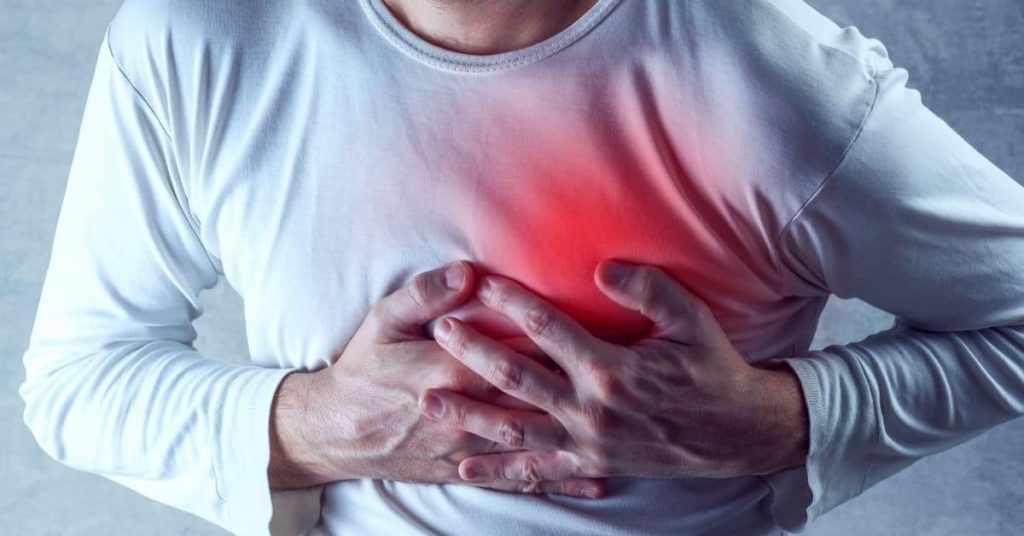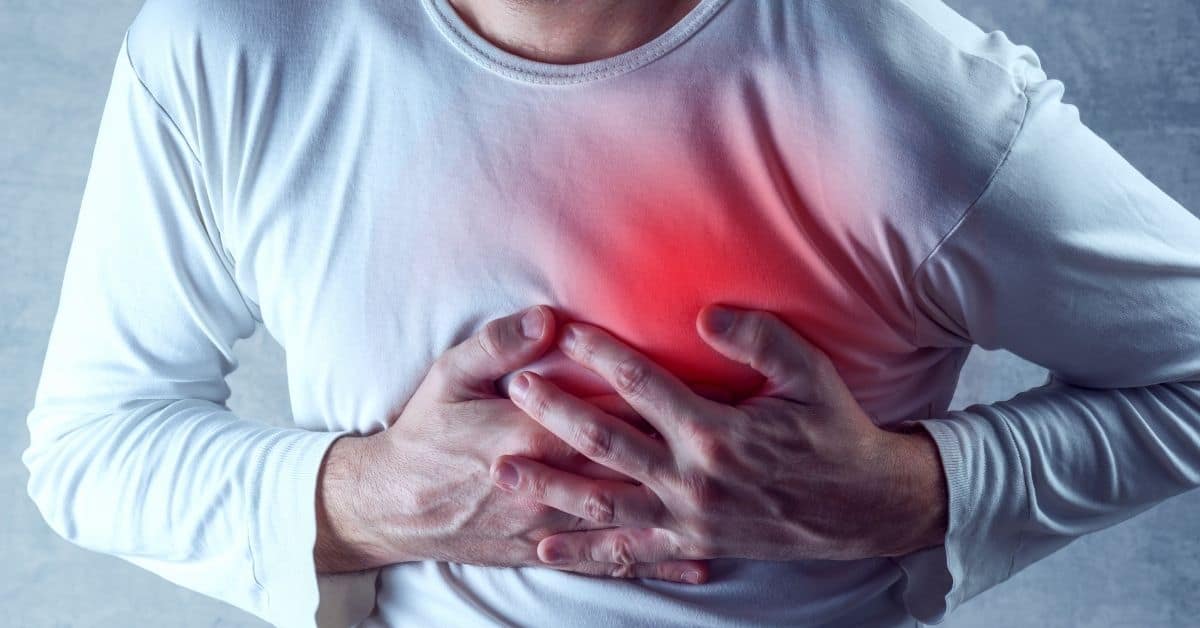Introduction: Understanding Chest Discomfort and Its Causes
Feeling discomfort in your chest can be scary, but not all cases indicate heart problems. Many people experience chest discomfort due to muscle strain, acid reflux, stress, or anxiety. If the discomfort is mild and does not come with shortness of breath, dizziness, or radiating pain, natural remedies may help.
However, if your chest pain is severe, persistent, or unusual, you should seek immediate medical attention to rule out serious conditions.

1. Practice Deep Breathing and Relaxation Techniques
Stress and anxiety are common triggers of chest discomfort, leading to muscle tightness. Practicing deep breathing techniques can help relax your body and reduce discomfort:
- Diaphragmatic breathing: Breathe in deeply through your nose, allow your belly to expand, and exhale slowly.
- Box breathing: Inhale for 4 seconds, hold for 4 seconds, exhale for 4 seconds, and hold again for 4 seconds.
Relaxation methods such as meditation and progressive muscle relaxation can further ease anxiety-related chest tightness.
✅ Pro Tip: Incorporate breathing exercises into your daily routine to prevent stress-related discomfort.
2. Improve Posture and Stretch Your Chest Muscles
Poor posture can strain chest muscles, leading to tightness and discomfort. Sitting hunched over or slouching for long periods may worsen chest pain. To fix this:
- Sit upright with your shoulders relaxed and back straight.
- Stretch your chest and shoulder muscles to relieve tension.
- Use an ergonomic chair if you work at a desk for long hours.
Stretching exercises like the doorway stretch and wall chest stretch can relieve tightness caused by muscle strain.
✅ Pro Tip: Strengthen your core and upper back muscles to maintain good posture and prevent recurring chest discomfort.
3. Adjust Your Diet to Prevent Acid Reflux
Acid reflux is a major cause of chest pain, often mistaken for heart issues. To prevent acid reflux-related discomfort:
- Avoid spicy, fried, and acidic foods, as they can trigger reflux.
- Eat smaller, frequent meals to reduce stomach pressure.
- Stay upright after eating and avoid lying down immediately.
Drinking ginger tea, chamomile tea, or aloe vera juice may help ease acid reflux symptoms and reduce discomfort.
✅ Pro Tip: If you experience frequent acid reflux-related discomfort, consult a doctor about GERD (gastroesophageal reflux disease).
4. Stay Active with Gentle Exercises
Regular physical activity can help reduce discomfort caused by muscle tension and poor circulation. Light exercises such as:
- Walking to improve heart and lung function.
- Yoga and stretching to enhance flexibility and release muscle tightness.
- Breathing exercises to support relaxation and oxygen flow.
However, if your discomfort worsens during exercise, stop immediately and consult a doctor.
✅ Pro Tip: Avoid high-intensity workouts if you have discomfort, as they may strain your muscles or trigger pain.
5. Use Natural Remedies for Quick Relief
Certain home remedies can provide quick relief from chest discomfort:
- Drink warm herbal teas like peppermint or ginger tea to ease digestion-related discomfort.
- Apply a warm compress to relax tense chest muscles.
- Use essential oils (lavender, eucalyptus, or peppermint) to relieve muscle tension and promote relaxation.
✅ Pro Tip: Staying hydrated and getting enough rest also play a key role in reducing discomfort.
Extra Tips for Preventing Chest Pain
While natural remedies can help relieve chest pain, taking preventive steps is equally important. Here are some additional tips to avoid frequent discomfort:
- Manage stress effectively: Chronic stress can lead to tight chest muscles and increased pain. Try relaxation techniques like meditation, yoga, or journaling.
- Limit caffeine and alcohol: These substances can irritate your stomach lining and contribute to acid reflux-related discomfort.
- Sleep in an elevated position: If acid reflux is causing your discomfort, try sleeping with your head slightly raised to prevent stomach acid from flowing back up.
- Monitor your breathing habits: Shallow breathing can contribute to chest tightness. Focus on taking slow, deep breaths throughout the day.
- Stay hydrated: Dehydration can cause muscle cramps, including chest tightness. Make sure you drink enough water daily.
✅ Pro Tip: If you frequently experience discomfort, keep a journal to track triggers such as diet, stress levels, and physical activities. This can help identify and prevent future episodes.For more information on relieving other areas, please click on the following links:Best Exercises for Knee Pain Relief: Strengthen & Protect Your Knees;Best Exercises for Ankle Pain Relief: Strengthen and Heal Your Ankles

Conclusion: Natural Ways to Manage Chest Pain
While chest discomfort can be concerning, many cases are non-cardiac and manageable with natural remedies. By practicing deep breathing, maintaining good posture, adjusting your diet, staying active, and using natural remedies, you can reduce discomfort and prevent future episodes.
However, if chest pain persists, worsens, or feels unusual, consult a medical professional to rule out serious conditions. Prioritizing a healthy lifestyle and stress management can help you maintain long-term well-being.

